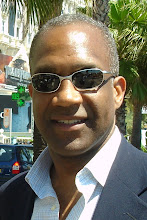He may not be coming to a classroom near you any time soon, but Olympic champion Michael Phelps' continuing string of embarrassing, public -- and illegal -- behaviors brings to mind a quote attributed to Eleanor Roosevelt: "Learn from the mistakes of others; you won't live long enough to make all of them yourself."
No one should derive joy from the troubles of the 23-year old swimmer. He has been blessed with extraordinary athletic abilities, and he has put in the time and energy required to capitalize on those abilities. The result: A record eight gold medals in the 2008 Olympic Games and, as of this writing, seven world records in swimming.
Nor should we excuse his offenses -- which include underage drinking, and driving under the influence (2004); and his admission to having used marijuana after a British tabloid recently published a photograph of Phelps with his mouth on a bong (a water pipe).
What we can do is to learn from the mistake -- yes, mistake (singular) -- of Professor Phelps.
Phelps' critical error is in thinking that he is a common guy. He is not.
Most people are not widely known outside of their immediate circle of friends. He is. Most people -- let alone 23-year old people -- do not earn $5 million a year. He does. By any measure, Michael Phelps has been given much, but has failed to understand an axiom grasped by others, both prominent and obscure: "To whom much is given, much is required."
You may not be a Bill Gates, but you can use your financial power -- as he has -- to relieve the suffering of others. You may not be a Paul Newman, but you can use your influence -- as the late actor did through his food company, "Newman's Own" -- to champion support for worthy causes.
All of us have squandered blessings that we've received because we've wanted to appear to be the common guy. (Don't get me wrong, it feels good to be special. And the advertisers and marketers play to this desire in us.) But, being the one gifted one is often inconvenient. Sometimes, it makes other people uncomfortable. Sometimes, it means that others want us to "perform." As a result, we are tempted to ignore the fact that it is these blessings that distinguish us from others; and provide us opportunities for good and for God.
Professor Phelps provides a good reminder. Let's hope that the next time we hear from the young professor, he isn't "Exhibit A."
Subscribe to:
Post Comments (Atom)




No comments:
Post a Comment